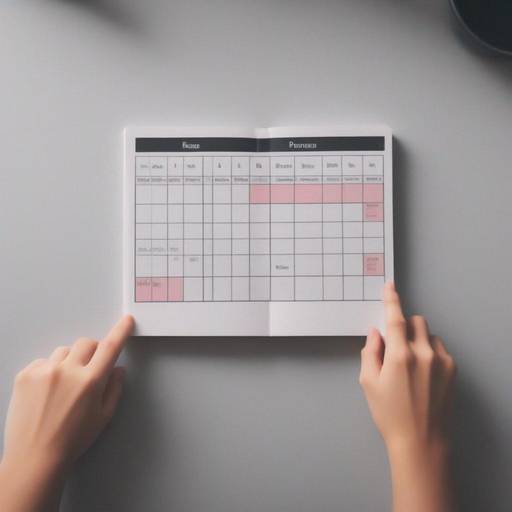
Introduction
At present, mental health and emotional well-being have become issues of great relevance. There is growing awareness of the importance of caring for our mental health, and physical exercise has proven to be a powerful tool to improve it. In this article, we will explore in detail how to develop an exercise routine that not only benefits your physical condition, but also contributes positively to your mental health and emotional well-being.
History and Background
The link between physical exercise and mental health has its roots in antiquity, where diverse cultures recognized the benefits of physical activity for mental balance. Since then, there have been significant progress in understanding how exercise impacts on mental health.
In the twentieth century, many scientific studies supported the notion that regular exercise not only strengthens the body, but also has positive effects on mental health. Understanding the underlying biological mechanisms has allowed the connection between exercise and mental health to be clearer than ever.
Analysis in Deep
The benefits of including exercise in your daily routine go beyond physical aspects. It is scientifically proven that exercise releases endorphins, known as "happiness hormones", which can reduce symptoms of anxiety and depression. In addition, regular physical activity can improve sleep quality, increase self-esteem and reduce stress.
Despite these benefits, there are challenges to maintaining a routine of constant exercises, especially when dealing with mental health problems. Motivation, low self-esteem and lack of energy can be significant obstacles. However, with appropriate support and a gradual approach, it is possible to overcome these challenges and enjoy the benefits of exercise for mental health.
Comprehensive review
The application of an exercise routine to improve mental health can vary according to individual needs. Some people may benefit from vigorous exercises, such as resistance training or intense cardio, while others find peace and relaxation in calmer exercises, such as yoga or moving meditation.
In terms of best practices, consistency and variety are fundamental. Set realistic goals and perform activities you enjoy can help you keep an active routine. In addition, the inclusion of outdoor exercises can further enhance the positive effects on mental health by connecting with nature and offering a sense of calm and well-being.
Comparative analysis
When comparing exercise routine to mental health and emotional well-being, a synergistic relationship between them is observed. Regular exercise practice can be a crucial pillar to maintain a stable emotional balance, while contributing to a person's integral well-being. The combination of a healthy exercise routine with mental health care strategies can enhance your efforts to live a full and fulfilling life.
Practical Tips and Accessible Tips
If you are looking to incorporate exercise routines to improve your mental health, consider the following recommendations:
- Start with activities that you enjoy and adapt to your level of physical condition.
- Set achievable goals and celebrate your achievements, however small.
- Find an exercise partner to get mutual support and motivation.
- Experiment with different types of exercises to find what works best for you.
Industry Perspectives and Expert Reviews
Mental health and emotional well-being experts agree that exercise is a powerful tool to improve mental health. The combination of traditional therapies with physical exercise has proven to be effective in treating mental disorders. In addition, the medical community is increasingly focused on promoting exercise as a form of prevention and complementary treatment for mental health problems.
Case Studies and Real Life Applications
A study conducted in young adults found that those who were regularly exercising had lower levels of perceived stress and depression. In the workplace, companies that encourage physical activity among their employees have reported significant reductions in absenteeism due to mental health problems.
Future Trends and Predictions
The future of the approach to mental health and emotional well-being will more prominently include the integration of exercise as an effective strategy. With the advancement of technology, digital applications and devices are expected to play a crucial role in the personalized monitoring and management of exercise to improve mental health.
Conclusions
Developing an exercise routine to improve mental health is a decision that can have a significant impact on your overall well-being. By incorporating exercise in your day to day, you will not only be strengthening your body, but also providing support to your mental health. From reducing stress levels to improving your mood, the benefits are varied and significant.
Frequently asked questions
What kind of exercise is best for improving mental health?
Choosing exercise depends on your personal preferences and level of physical condition. Both aerobic activities and yoga have proved beneficial to mental health. The key is to find an activity you enjoy and can maintain consistently.
How much exercise should I do to get mental health benefits?
It is recommended at least 150 minutes of moderate physical activity per week, or 75 minutes of vigorous activity. However, any amount of exercise can provide mental health benefits, so it is important to find a balance that suits your daily life.
Can exercise help in managing mental disorders such as anxiety or depression?
Yes, many studies support the role of exercise in reducing symptoms of anxiety and depression. Regular exercise can act as an important supplement in the treatment of these disorders.
What is the best way to keep the motivation to exercise regularly?
Setting realistic goals, finding peer exercises or joining group classes, changing your exercise routines and celebrating your accomplishments can help you maintain long-term motivation.
Are there risks associated with exercise for mental health?
While exercise has many benefits for mental health, it is important to practice it safely and avoid excess. In some cases, excessive exercise can contribute to mental health problems, so it is crucial to find an adequate balance.
How can I integrate exercise into my daily routine realistically?
Finding specific moments during the day to exercise, as before or after work, during lunch or weekends, can help you integrate exercise realistically into your daily routine. Consistency is key to establishing a successful routine.
Conclusion
Creating an exercise routine designed to improve mental health can not only provide obvious physical benefits, but can also significantly contribute to greater emotional stability and overall well-being. By making exercise an integral part of your approach to mental health, you will be taking an important step towards a balanced and satisfactory life.






















































